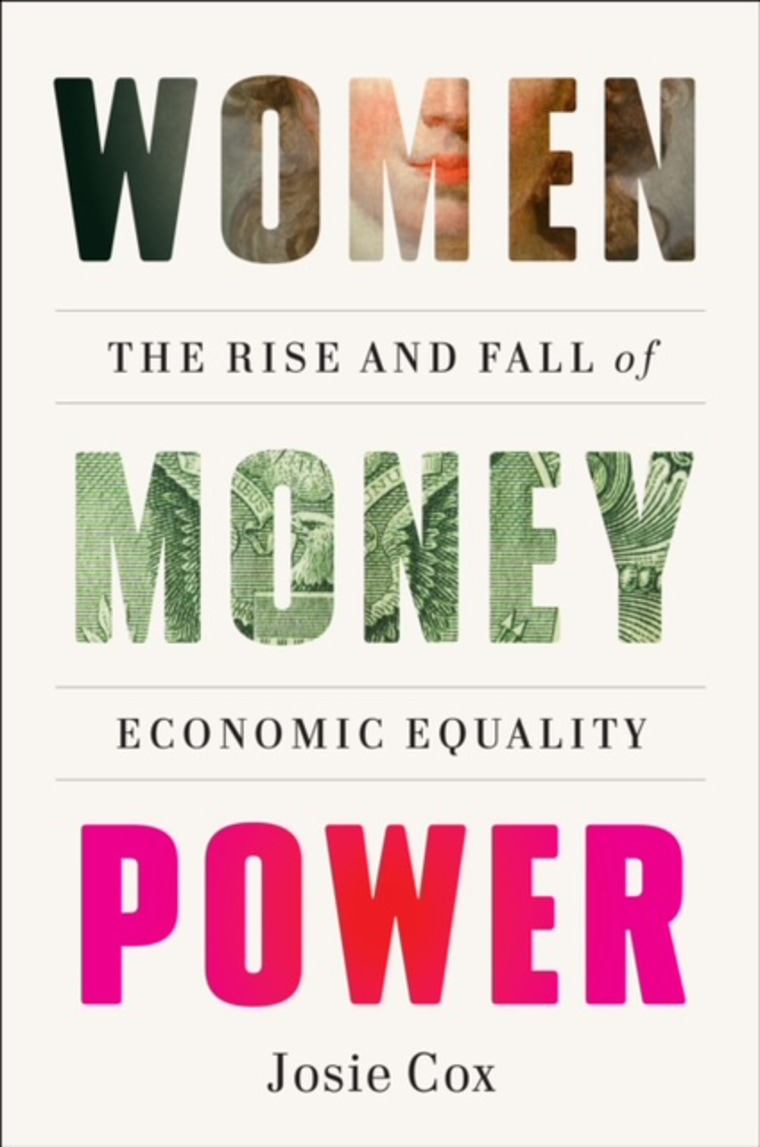Two years into my last staff job in a media corporation’s newsroom, I found out that the men I was managing were getting paid significantly more than me.
I’d trained as a business and finance reporter, and by that point had carved out a beat writing about the gender pay gap — the significant, and sometimes seemingly immutable, chasm between the average pay of a man and the average pay of a woman in a company or across the broader labor market.
In 2004, the average woman working full-time in America made about 80 cents compared to every dollar her male counterpart earned. Today, 20 years later, that gap is only a tiny bit smaller at about 82 cents.
Whenever I wrote my columns and filed my news stories and analyses, I silently vowed that I would not be a data point that corroborated that statistic. Armed with knowledge, a canny awareness, and the determination to effect change, I would be an anomaly, I told myself. And then I found out that I was squarely at the center of the narrative about this grossly unequal economic playing field.
I’d just had a baby. I’d taken a maternity leave and was grappling with the decision so many people face when they become parents, but few of us anticipate before a child is actually born: how to balance a commitment to pursuing a career in an always-on labor market, with the duties of caring for an always-on infant. It’s perhaps the most complex equation we have to face as adults, and time and money are the twin-variables that always determine the outcome. There’s rarely enough of either. Often, we find ourselves short on both.
Of course, I was furious when I had my very own Lilly Ledbetter moment, but it also provided an unexpected sense of clarity about the infrastructure and parameters of the world in which we all live and work: the extent to which capitalism’s nifty mechanisms still have a way of silently and systemically favoring some and disadvantaging others.
I was angry at the manager who hired me, of course, but I was also frustrated at myself. I’d responded truthfully when asked about my previous salary. This new employer offered me a whisker more than I was making before, but their budget likely meant they could have paid me much more.
My skewed sense of my own market worth was their boon. I was also offered the job during a time when media positions were few and far between. The virtues of fairness and justice, it seems, were entirely irrelevant when it came to capitalism’s written-in-stone relationship between supply and demand.
I was humbled and awed by my sense of having been caught out. And it inspired me to dig deeper — to understand the systems and forces that cement the gender pay gap and other gender gaps — the gender promotion gap and the gender opportunity gap, for example.
From then on, I devoted myself as a reporter to answering the question of why, despite all of the progress toward a more gender-equal world, we’re still so far off.
Why do so many women leave the labor force when they have children? Why are the highest echelons of corporate management still so homogenous? Why are we celebrating the fact that just over 10 percent of Fortune 500 CEOs are women? (Celebration will be merited when we hit 50 percent.)
In pursuing answers to these questions, I learned a lot. Since the 1970s and 1980s, women have been protected by laws preventing them from getting fired for becoming pregnant. Women can no longer be denied credit or a business loan purely on account of their gender. And under the 1963 Equal Pay Act, individuals must be paid equal amounts for doing equal work regardless of sex.

But as I write in my book, “Women Money Power: The Rise and Fall of Economic Equality,” it’s the perceptions, biases and heuristics held by the most powerful people — who are often men — in business that have stopped the gender pay gap from narrowing at anything other than a glacial pace. I firmly believe they’re also the reason why I was paid so little.
In 2012, Lauren Rivera, a professor at Northwestern’s Kellogg School of Management, coined the term “Looking Glass Merit” to describe the unconscious tendency that we as humans have to define merit in a way that is self-validating.
When we’re told to hire or promote someone who is “ambitious” or “driven,” for example, we hire someone who resembles us. After all, don’t we consider ourselves to be ambitious and driven? Evidence of this effect is everywhere but especially in industries that remain bastions of overt masculinity: finance and tech, for example.
Another element of our collective culture is that certain roles in society are still deemed gendered. Most significantly, in this case, childcare. Childcare in the U.S. has never been treated as an essential utility the way it is in so many other countries.
Indeed, the U.S. remains one of only six countries in the world without any form of national paid leave.
In December 1971, President Richard Nixon vetoed a bipartisan effort to establish a national system of comprehensive child development and day care. The proposal, he said, was characterized by “fiscal irresponsibility, administrative unworkability, and family weakening implications.” He added: “Neither the immediate need nor the desirability of a national child development program of this character has been demonstrated.”
In short, it was more palatable to force women to keep shouldering the burden of childcare at the expense of reaching their own professional and economic potential than to implement a policy that could be construed as a threat to traditional family values — to the patriarchy.
Against a backdrop of all of this — a society built on these foundations — I don’t blame any woman for making decisions and choices that mean she ends up being underpaid compared to a man, like I was. We often think that if we fight hard enough, we have the power to change the system. But it’s going to take more than that. Women have done their fair share of fixing. It’s time for everyone else to pitch in.
